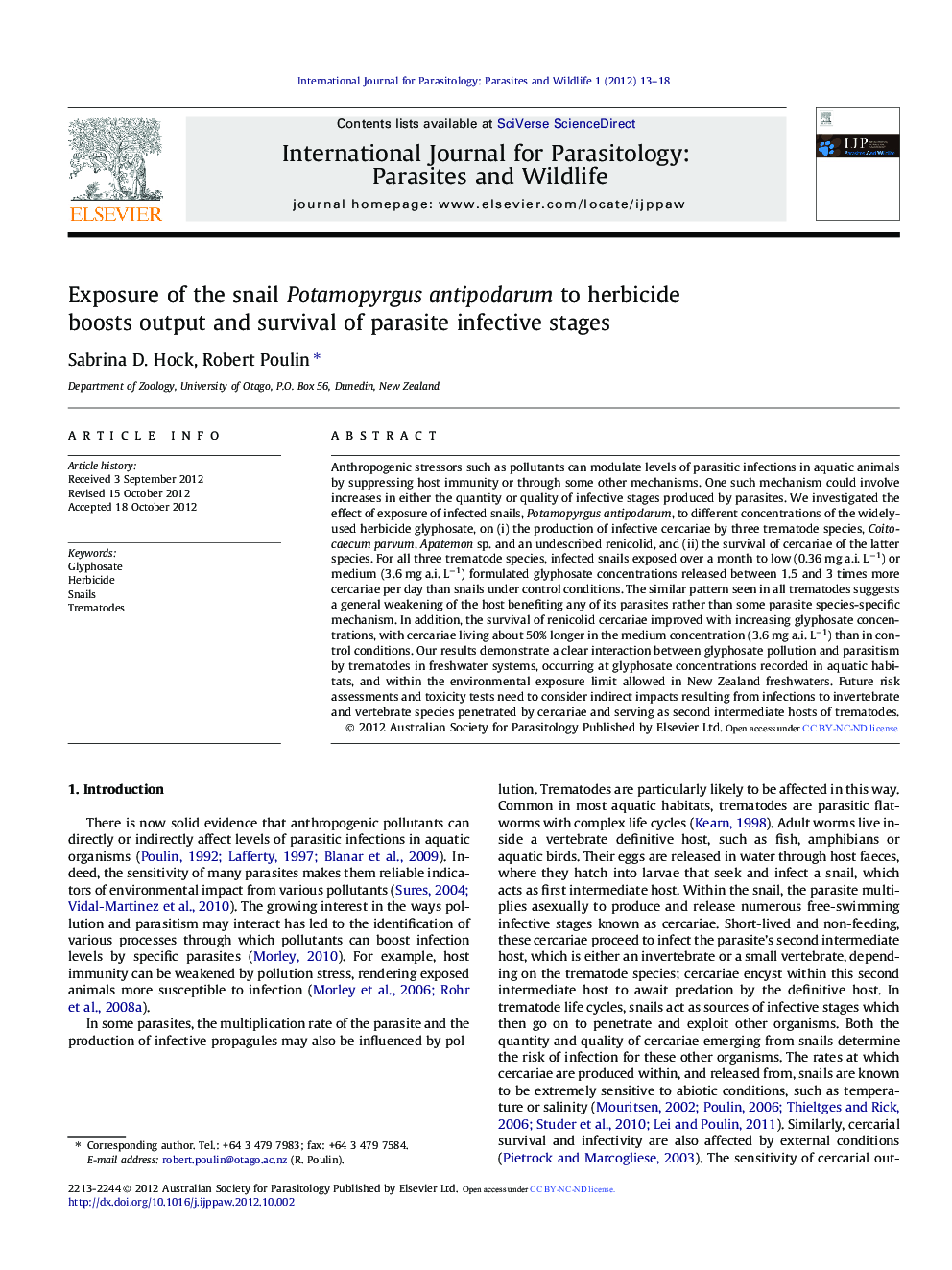| کد مقاله | کد نشریه | سال انتشار | مقاله انگلیسی | نسخه تمام متن |
|---|---|---|---|---|
| 2055337 | 1543813 | 2012 | 6 صفحه PDF | دانلود رایگان |

Anthropogenic stressors such as pollutants can modulate levels of parasitic infections in aquatic animals by suppressing host immunity or through some other mechanisms. One such mechanism could involve increases in either the quantity or quality of infective stages produced by parasites. We investigated the effect of exposure of infected snails, Potamopyrgus antipodarum, to different concentrations of the widely-used herbicide glyphosate, on (i) the production of infective cercariae by three trematode species, Coitocaecum parvum, Apatemon sp. and an undescribed renicolid, and (ii) the survival of cercariae of the latter species. For all three trematode species, infected snails exposed over a month to low (0.36 mg a.i. L−1) or medium (3.6 mg a.i. L−1) formulated glyphosate concentrations released between 1.5 and 3 times more cercariae per day than snails under control conditions. The similar pattern seen in all trematodes suggests a general weakening of the host benefiting any of its parasites rather than some parasite species-specific mechanism. In addition, the survival of renicolid cercariae improved with increasing glyphosate concentrations, with cercariae living about 50% longer in the medium concentration (3.6 mg a.i. L−1) than in control conditions. Our results demonstrate a clear interaction between glyphosate pollution and parasitism by trematodes in freshwater systems, occurring at glyphosate concentrations recorded in aquatic habitats, and within the environmental exposure limit allowed in New Zealand freshwaters. Future risk assessments and toxicity tests need to consider indirect impacts resulting from infections to invertebrate and vertebrate species penetrated by cercariae and serving as second intermediate hosts of trematodes.
Figure optionsDownload as PowerPoint slideHighlights
► Glyphosate is one of the most widely used herbicide for agricultural or domestic purposes.
► Exposure to glyphosate enhances output of three trematode species from their snail host.
► Also, exposure to glyphosate increases the survival of trematode infective stages.
► Glyphosate contamination of freshwaters may boost parasitism in invertebrates and fish.
Journal: International Journal for Parasitology: Parasites and Wildlife - Volume 1, December 2012, Pages 13–18